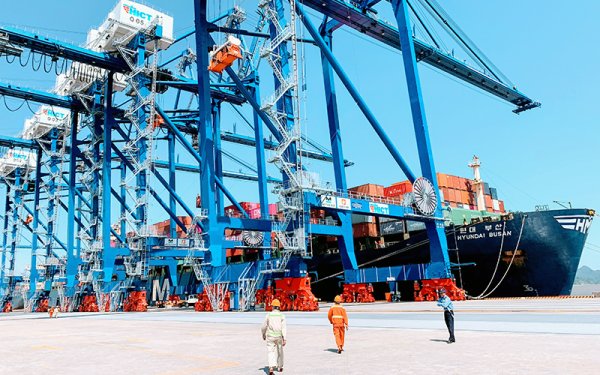
HÀ NỘI — Việt Nam aims to raise its sovereign ratings by 2030, according to the Sovereign Rating Improvement Project recently approved by eputy Minister Lê Minh Khái.
Specifically, Việt Nam wants to achieve a credit rating of Baa3 (for Moody’s) or BBB- (for S&P and Fitch) and above by 2030.
The project aims to turn Việt Nam into a developing country with modern industry and high middle income and improve the country’s position and prestige in the international arena.
Under the project, the average growth rate of GDP for the whole period will be about 7 per cent a year, with GDP per capita at the current price by 2030 reaching about US$7,500 and total social investment averaging 33-35 per cent of GDP.
It also sets a target of better controlling State budget overspending approved by the National Assembly in the annual State budget estimates and the 5-year national financial plan, striving to ensure that overspending equals around 3 per cent of GDP and public debt does not exceed 60 per cent of GDP.
Its main solutions are to build a firm public financial system, expand a sustainable revenue base to improve debt indexes and promote fiscal consolidation, increase the transparency of fiscal policies, and improve the structure and quality of the banking system and State sector and the credit-related legal corridor.
The current credit rating of S&P for Việt Nam stood at BB with a positive outlook, while Moody’s is a Ba3 with a positive outlook.
Fitch Ratings on March 28 affirmed Việt Nam a BB rating with a positive outlook.
Fitch Ratings said this reflected continued strong medium-term growth prospects, despite the pandemic and the global economic spillovers from the war in Ukraine and strong external finance metrics relative to peers.
The rating remains constrained by contingent liability risks associated with large State-owned enterprises and structural weaknesses in the banking sector.
Fitch forecasts GDP growth to accelerate to 6.1 per cent in 2022 and 6.3 per cent in 2023 from 2.6 per cent in 2021.
This will be led by a recovery in domestic demand, strong exports, and high FDI inflows, particularly in the manufacturing sector, as economic activity resumes with policy changed to a more flexible approach to the pandemic, made possible by higher vaccination rates.
However, Fitch pointed out that risks remained, including the global economic implications of the war in Ukraine and sanctions on Russia, further pandemic-related shocks, and high commodity prices. — VnExpress News
- Reduce Hair Loss with PURA D’OR Gold Label Shampoo
- Castor Oil Has Made a “Huge” Difference With Hair and Brow Growth
- Excessive hair loss in men: Signs of illness that cannot be subjective
- Dịch Vụ SEO Website ở Los Angeles, CA: đưa trang web doanh nghiệp bạn lên top Google
- Nails Salon Sierra Madre
 VnExpress News The News Gateway of Vietnam
VnExpress News The News Gateway of Vietnam




